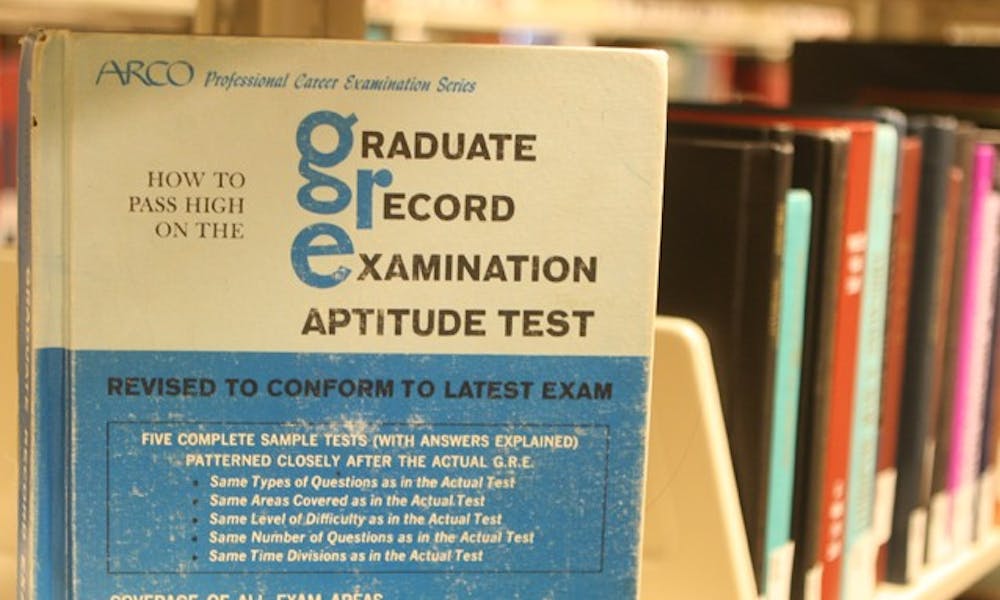Dukies planning to take the GRE next Fall will be among the first wave of students to test out the exam’s new format—in the most comprehensive reform of the GRE in its 59-year history.
The test is changing across all three sections—Verbal Reasoning, Quantitative Reasoning and Analytical Writing. The test will also feature an on-screen calculator and new scoring scale.
The Education Testing Service, creator of the GRE, originally announced plans to modify the exam in December 2009. Changes to the test will significantly improve the flexibility of the exam and will more accurately reflect the skills required by young professionals, according to ETS’s website.
“The GRE revised General Test has been redesigned to be more aligned with the skills that students need to be successful in today’s graduate and business schools,” Dawn Piacentino, director of communications and services for the GRE program, wrote in an e-mail Tuesday.
In the new test, the Verbal Reasoning section will require more “complex reasoning” skills, according to the Kaplan Test Prep and Admissions website. The new test will not have any antonym and analogy questions, but will have more reading comprehension and reasoning questions. And although the same mathematical material will be tested in the Quantitative Reasoning section, students will be challenged with more real-life scenarios and data interpretation problems.
Director of Graduate School Admissions Tom Steffen is optimistic about the changes to the exam, noting it will only “better prepare” students for their post-graduate experiences.
“As the tests will offer better assessments of the test-taker, I believe that the changes of the test will allow for a more complete evaluation of the applicants for admission,” he said.
Among the most evident changes to the test is a new scoring scale, said Lee Weiss, assistant director of the GRE at Kaplan Test Prep and Admissions. Instead of the current 200- to 800-point scale system in 10-point increments, the new scale will run from 130 to 170 in one-point increments.
“[The new GRE] will highlight the difference between high and low scores,” Weiss said.
Weiss said the essay section is also undergoing minor revisions.
“The essay questions are going to be more tailored and less open-ended which will need more specific answers,” he said.
In the current test, students have to complete two essay questions in two separate time intervals. The new test, however, allows students to move from one question to the next within a single time frame.
Although seniors will not have the opportunity to take the new GRE, juniors can opt to take the current or the new test.
Weiss recommended that juniors take the current GRE, adding that in previous revision years, students struggled to adjust to test changes. Further, juniors who elect to take the new GRE in August will have to wait until November to receive their scores—which may not be compatible with application deadlines, he added.
“I would advise students who will take the test in the future to focus on critical thinking skills,” Steffen said. “Applying these skills to problems will be important measures for graduate programs.”
This article has been modified to clarify that students taking the new GRE August-September 2011 will receive their scores in November of that month, not December.
Get The Chronicle straight to your inbox
Signup for our weekly newsletter. Cancel at any time.

